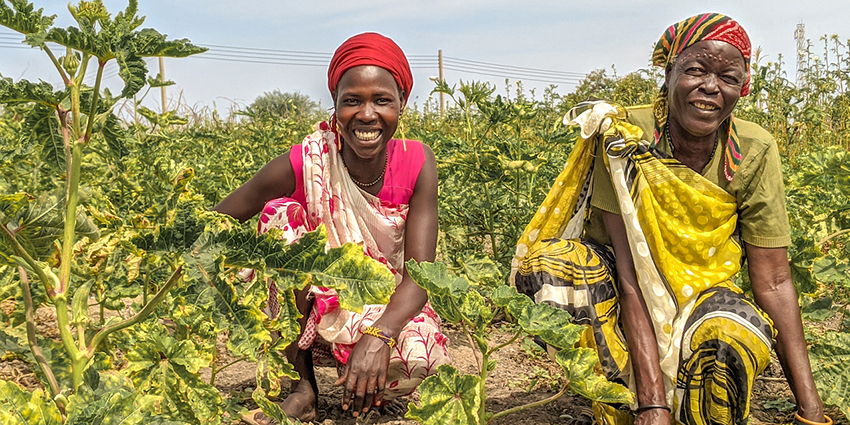
In 2013, alongside the French Development Agency (FDA), the Foundation launched its first technical assistance programme: the African Facility. The objective of this scheme is to support small and medium-sized rural microfinance institutions, with a strong social impact, in Sub-Saharan Africa. More than eight years after its launch, the Facility’s results bear witness to the importance of providing not only financial but also technical support to partner microfinance institutions.
Through the African Facility, the Foundation and the FDA have supported 26 microfinance institutions, which have themselves financed income-generating activities of more than 500,000 borrowers with average loans of €200. The programme, that allowed carrying out 328 technical assistance missions, has covered many areas of expertise, from the development of environmental strategies to the digitalisation of the credit granting process and the strengthening of the governance.
In this context, Bimas and MicroLoan Fondation, two microfinance institutions in Africa, received several technical assistance missions. Spotlight on their assessment of the African Facility. Discover the interview of Elizabeth Karinga, financial manager of BIMAS and Randall Williams former CEO, of MicroLoan Malawi who looks back on this programme.
What is your assessment of the African Facility?
Elizabeth: The African Facility has been an extraordinary adventure for BIMAS. The progress made by our institution is important. For example, when we started to be supported by the African Facility, our operations management processes were still manual, whereas, through the support of the programme, we were able to begin a digitalization process. Thanks to the African Facility, we have also improved our social performance management and the communication with our clients.
Randall: MLF Malawi joined the African Facility in 2018 and has benefited from several missions, particularly on digitalization. For example, with the assistance of the facility, we have implemented a new HR platform which has made it possible to automate some HR procedures and ensure more efficient staff management such as the management of staff leave. Prior to implementing the platform, it took branch staff two days and four sheets of paper to get approval on their leave requests. It now takes less than five minutes and no paper for that same approval. We were also able to implement a new cloud-based accounting platform to replace the legacy system that we had. This came at absolutely the right time as it allowed our Finance staff to work remotely from home during the COVID-19 crisis, something that was not possible before. I should point out as well that both platforms have centralised file archiving capabilities that allows teams to access digital files securely and remotely. So, apart from the significant gains in productivity, we have also become a more agile organisation since Management is now able to use the real time access to information on the platforms to make strategic decisions faster.
Elizabeth: The African Facility has really helped us in terms of developing our business. One of the essential things in microfinance is to be able to gauge how many people we reach, what type of disbursement we make and how to increase the financial inclusion of the greatest number. At the start of the programme, BIMAS had approximately 18,000 clients; today we serve 42,000 people, thanks to the new processes that we have implemented within the framework of the African Facility. We have moved up from 21 to 40 branches and this has created jobs in our new areas of intervention, particularly in rural areas. This growth demonstrates the positive impact of the programme and the partnership with the Grameen Crédit Agricole Foundation.
Randall: We are really grateful for the support that we have received under the African Facility to implement these capacity building initiatives. These technical assistance missions have really helped to strengthen our operations by improving the governance structure and increasing the overall resilience of our organization. More importantly, it has helped us to minimize the disruption linked to the COVID-19 pandemic and has also enabled us to scale our outreach at a much faster rate than before. For context – we were able to grow our branch network from 15 to 22 over the last two years (despite the pandemic) and this is largely due to the productivity improvements which has allowed our staff to better focus on scaling outreach, improving customer satisfaction, as well as driving other key social performance management objectives. I hope that Grameen Credit Agricole Foundation will be able to continue this very important initiative because as you can see, there are clear benefits not only to the institution itself, but also to the base of pyramid clients that we serve.
More information about our technical assistance programmes here.